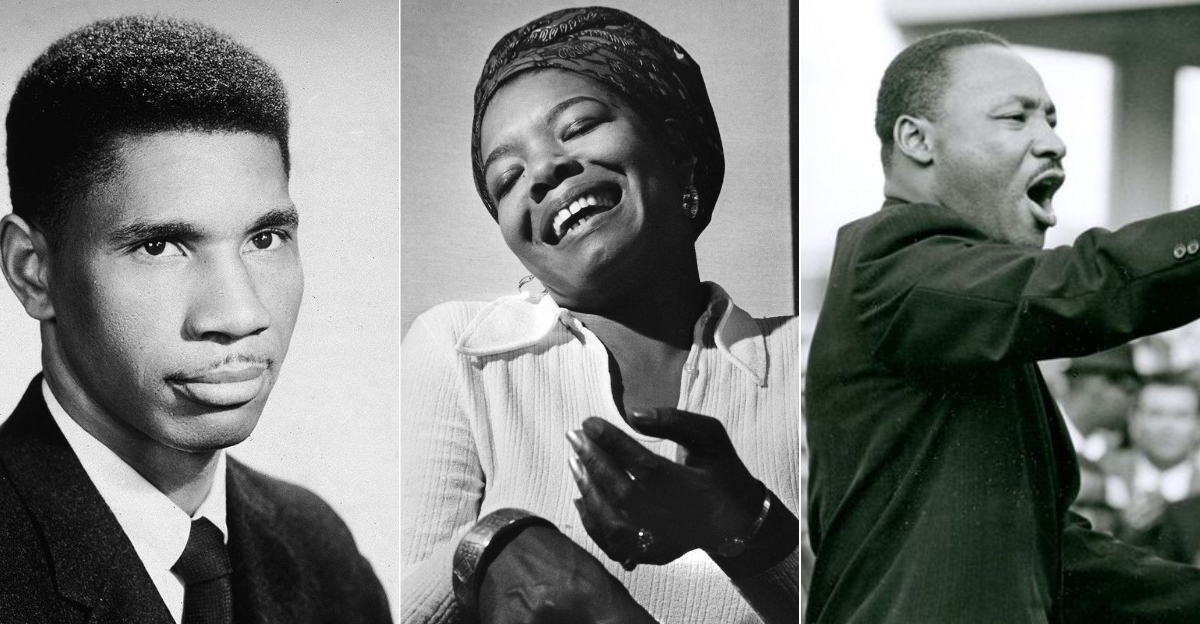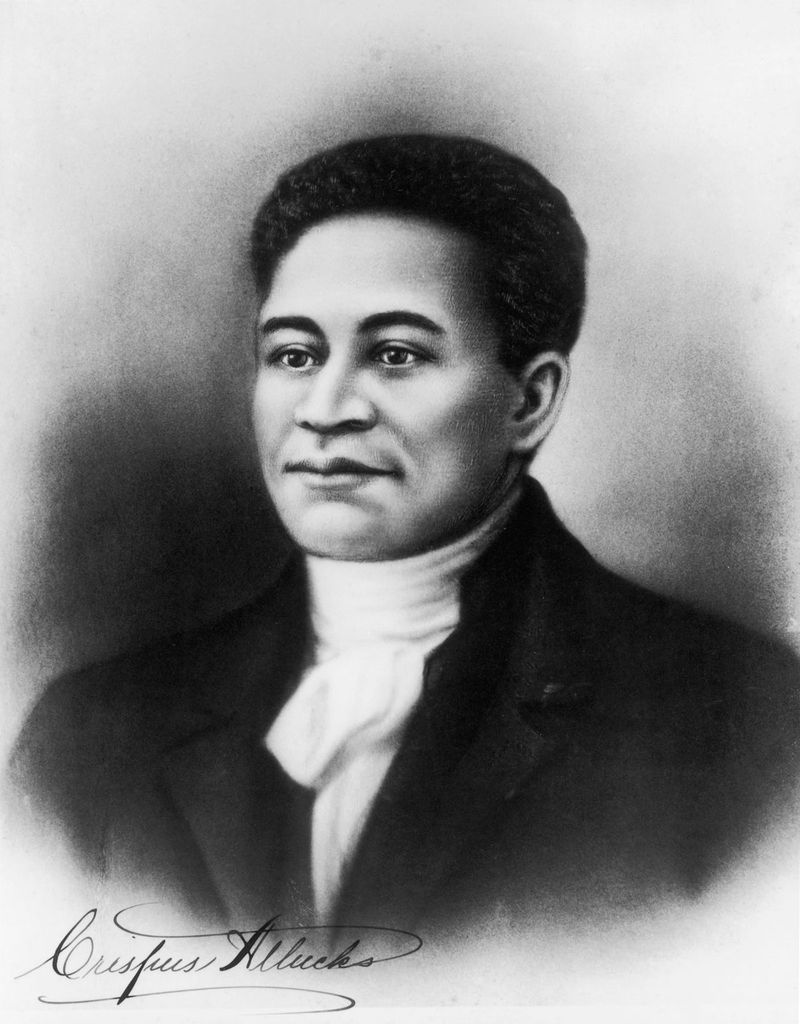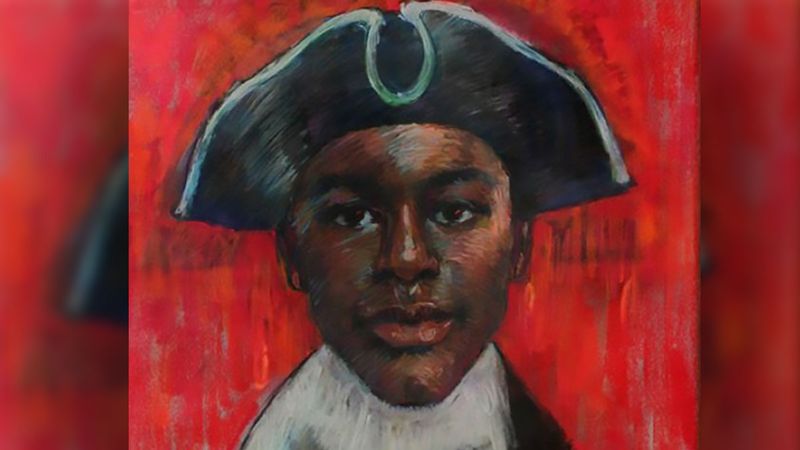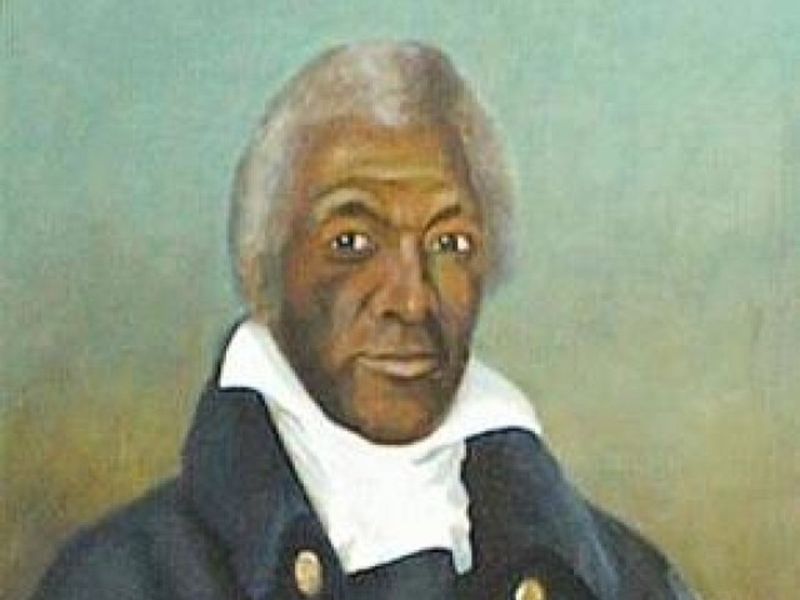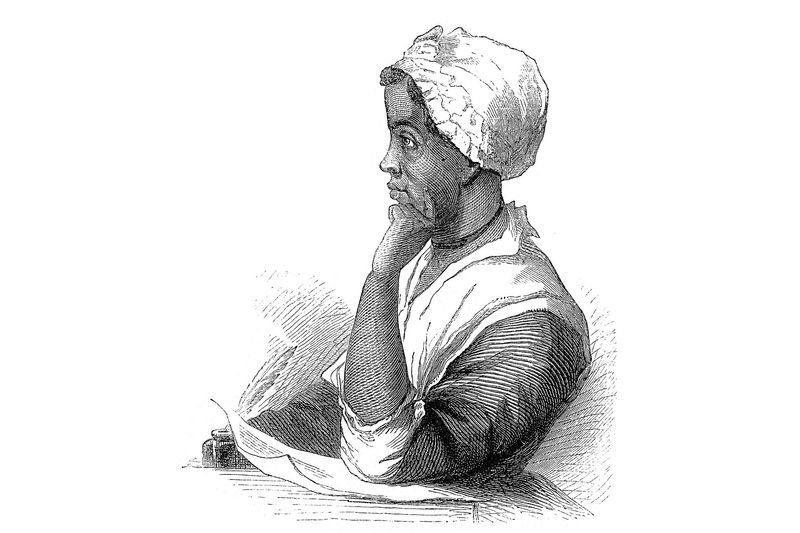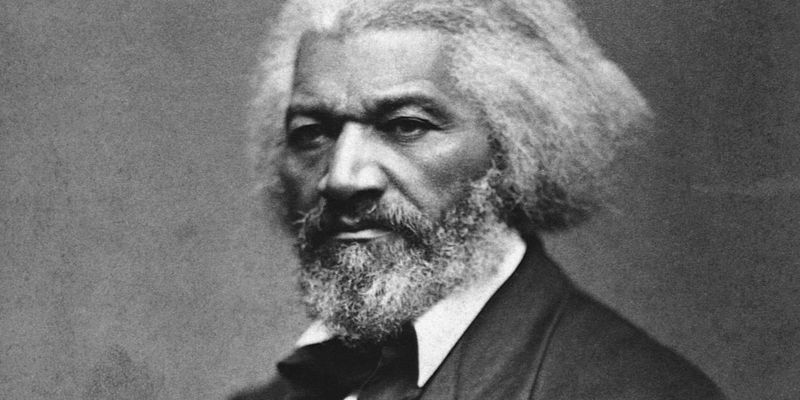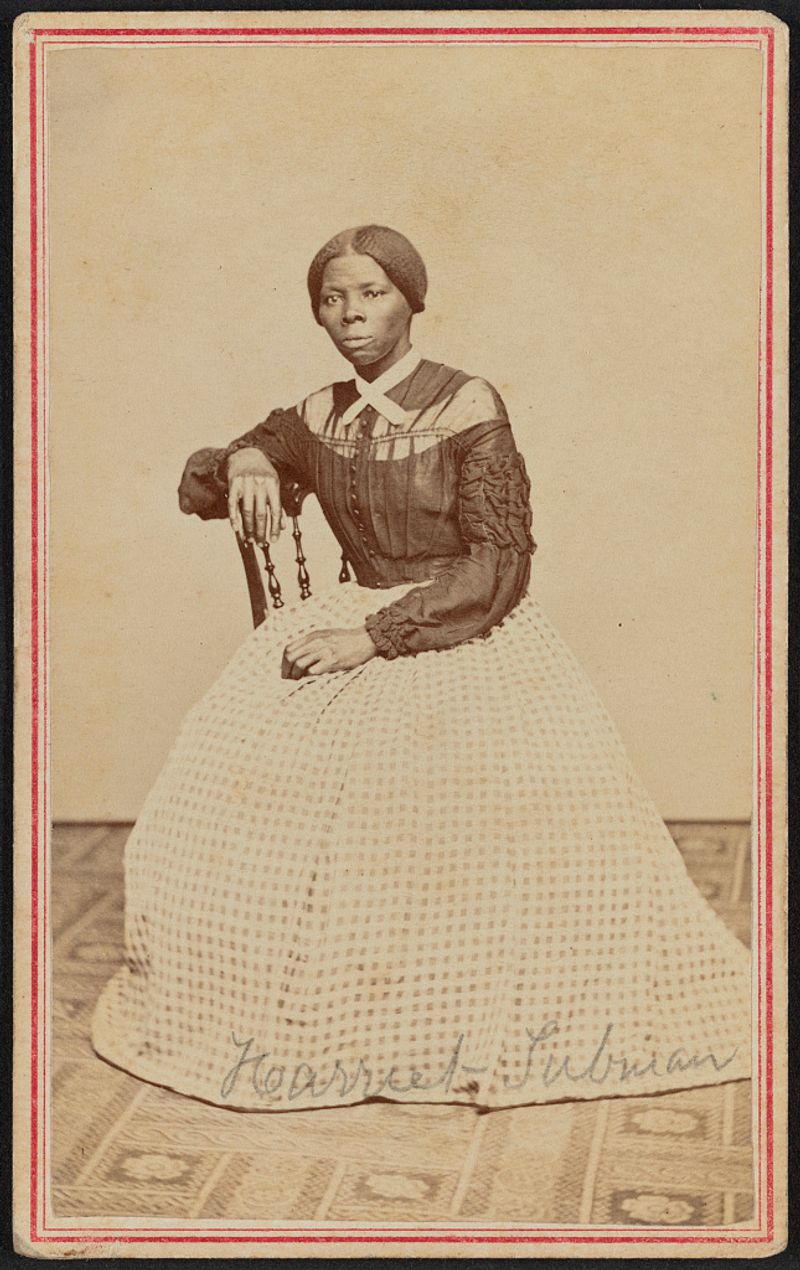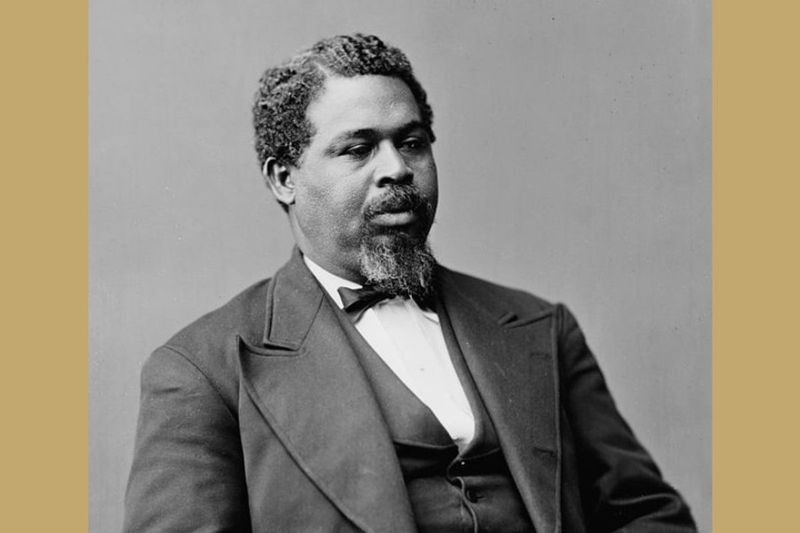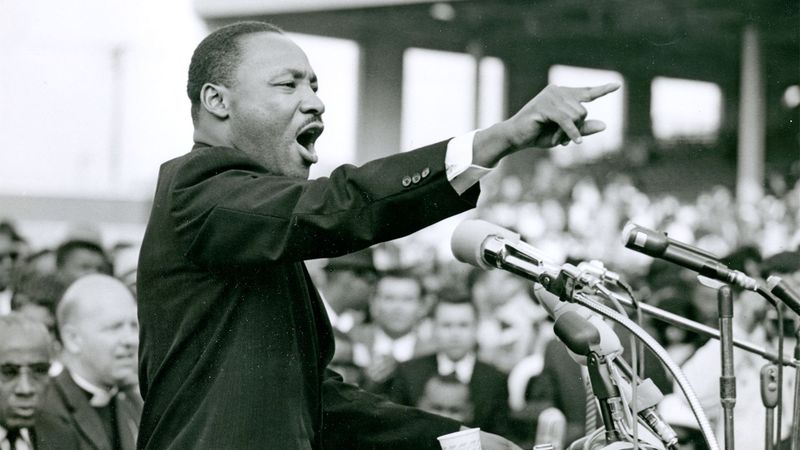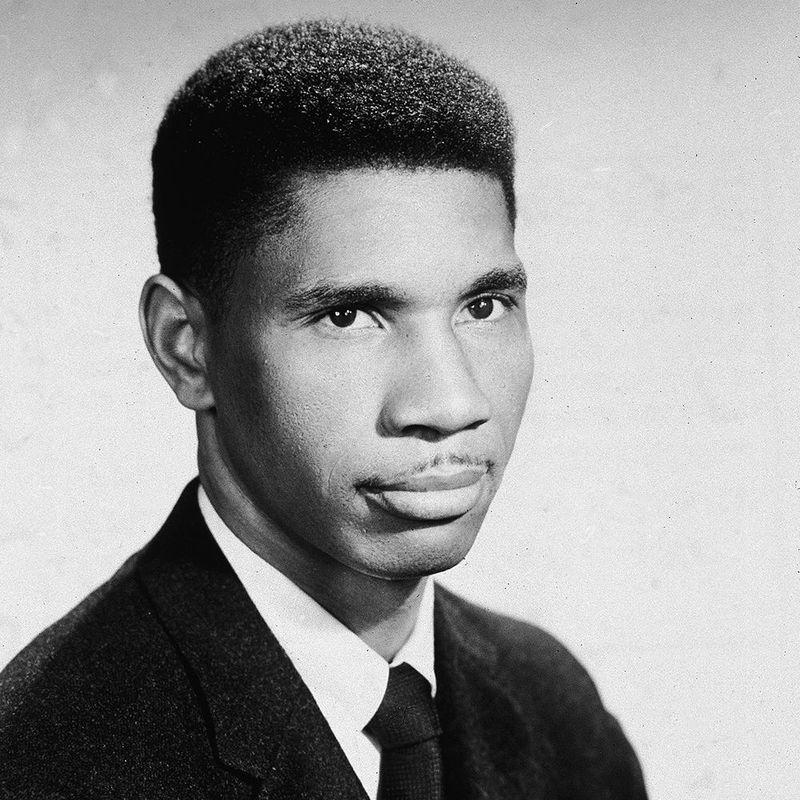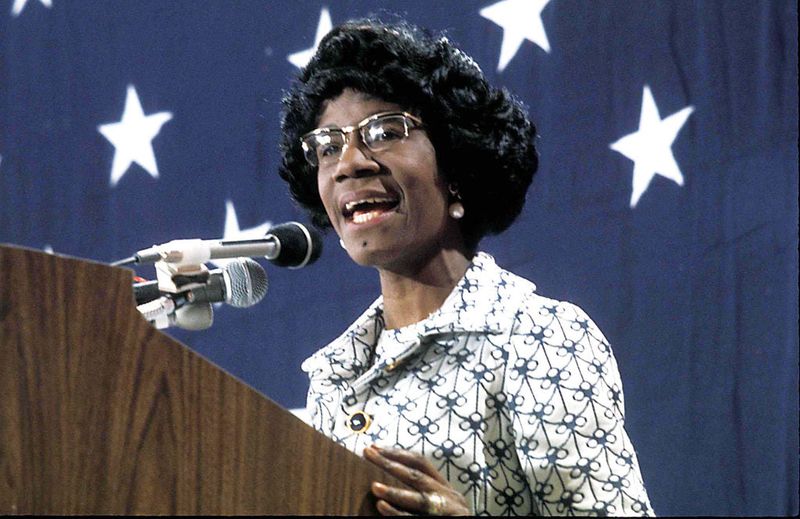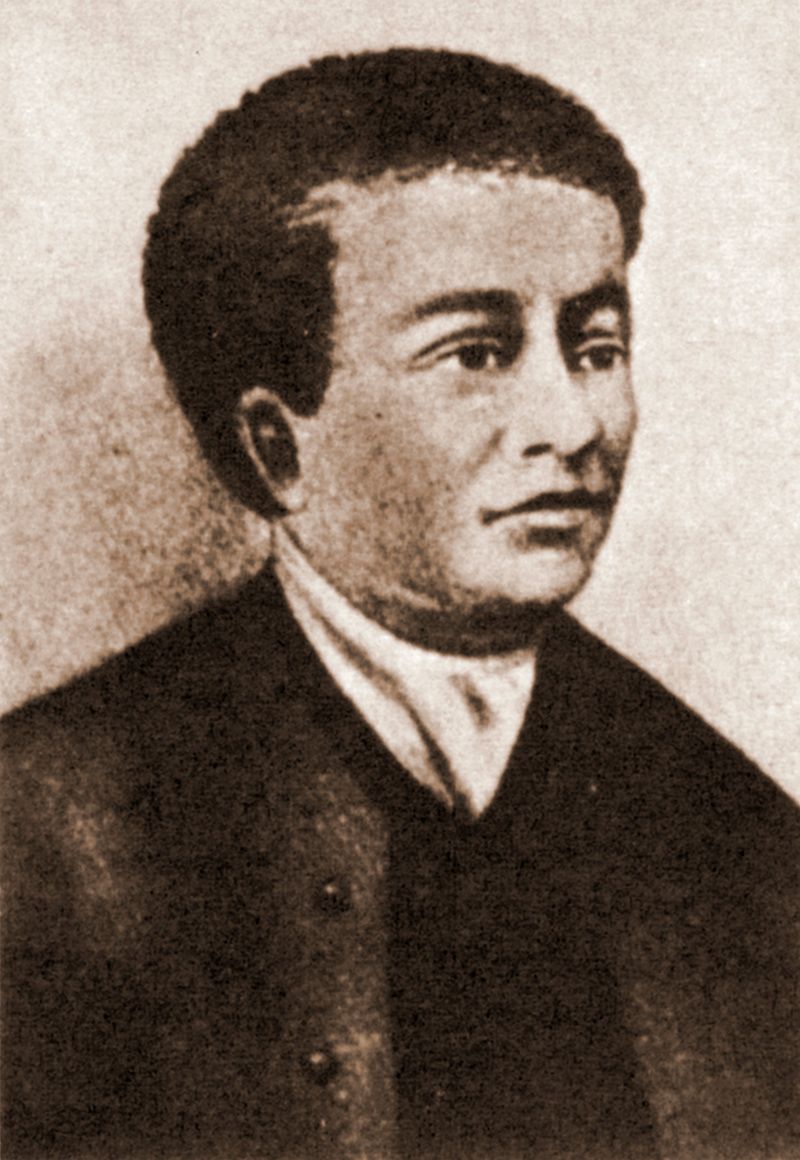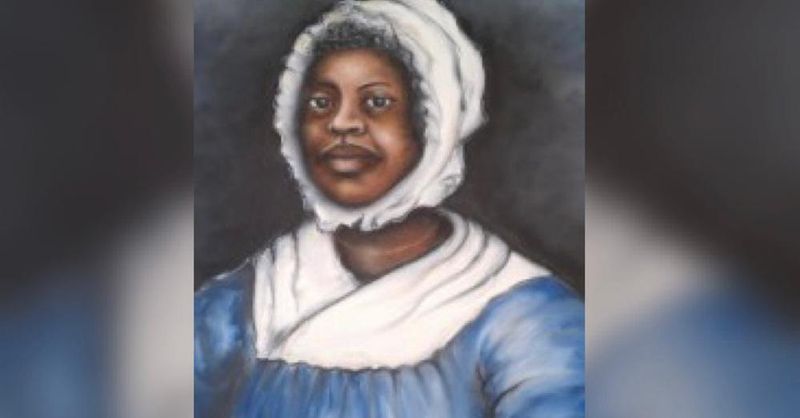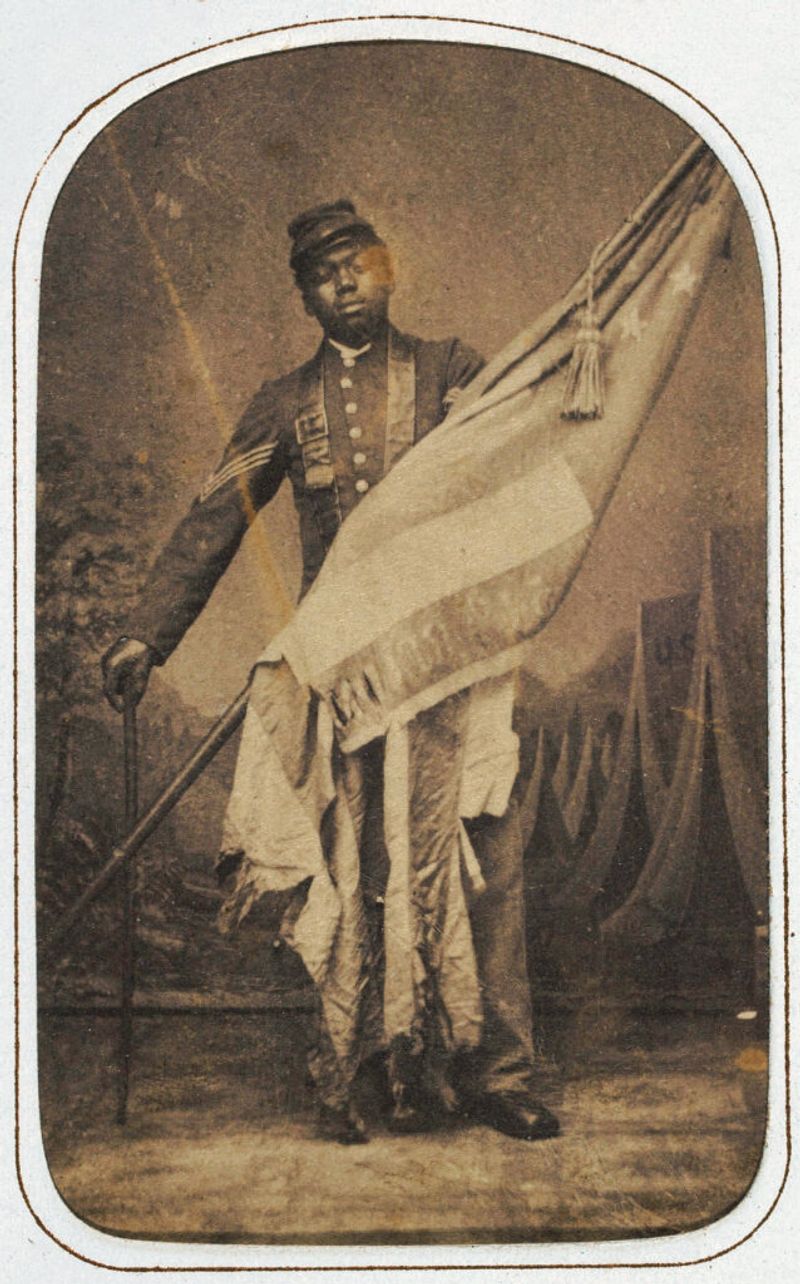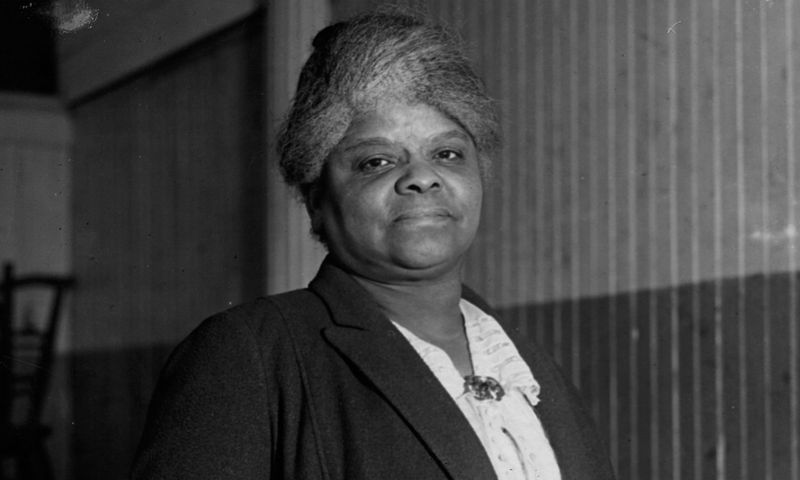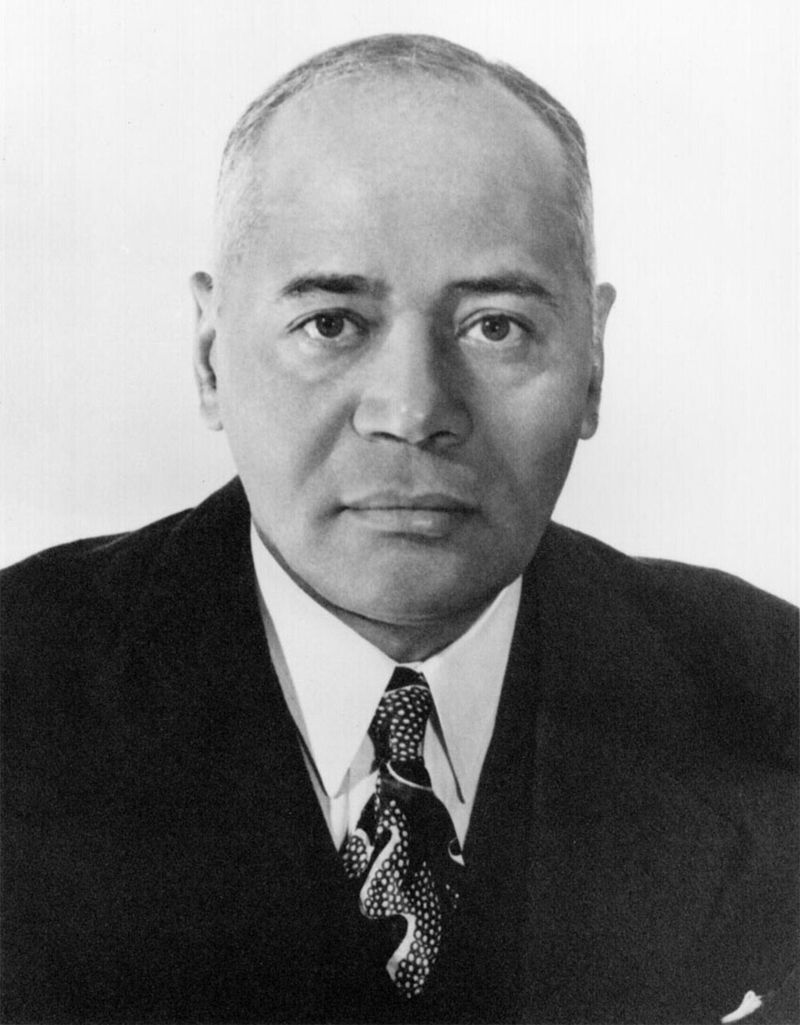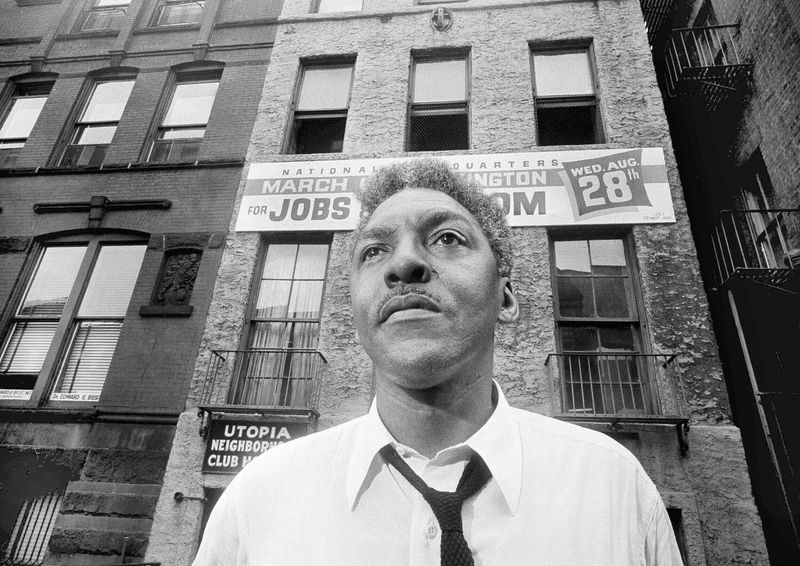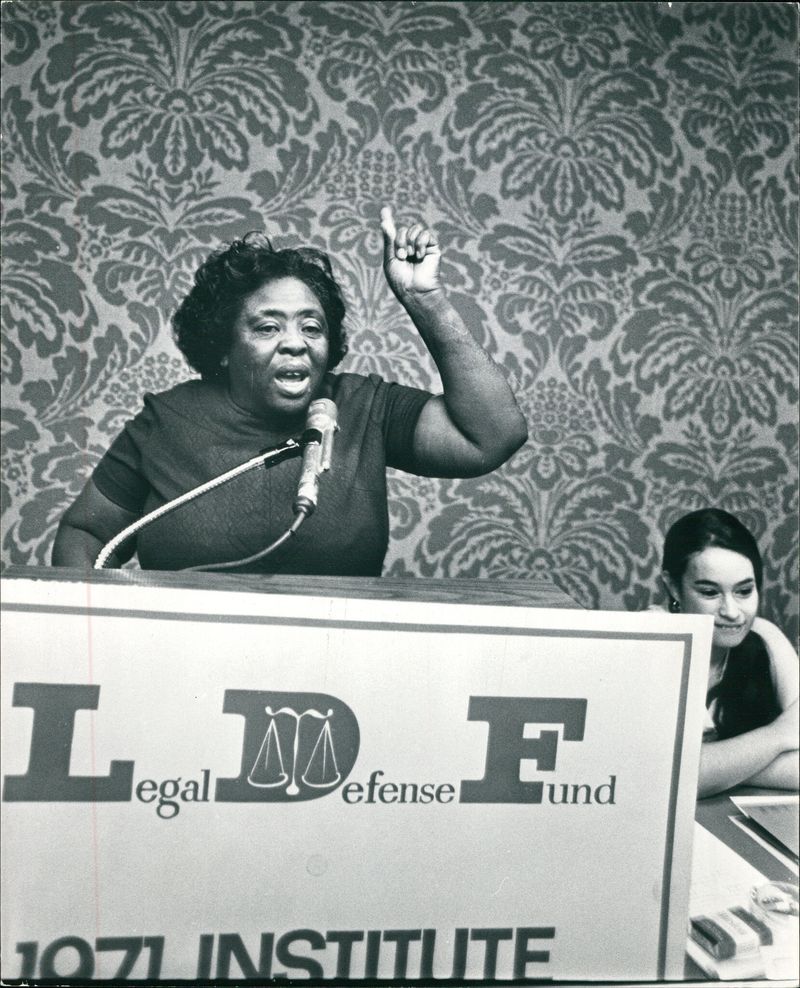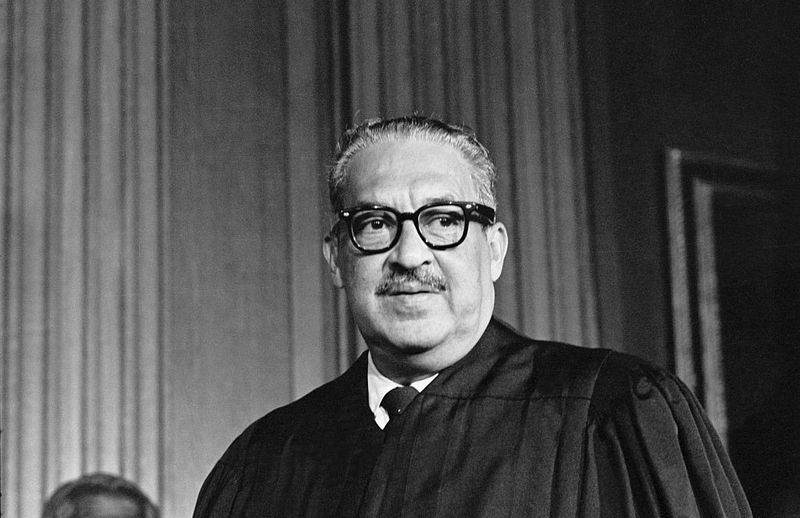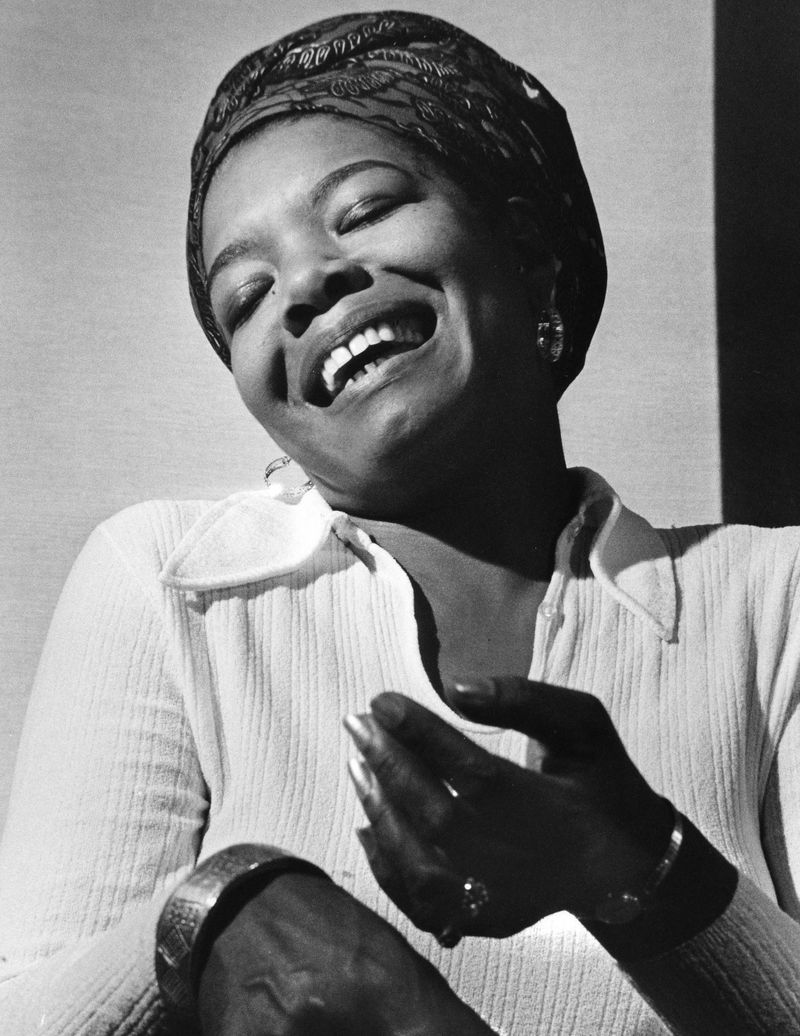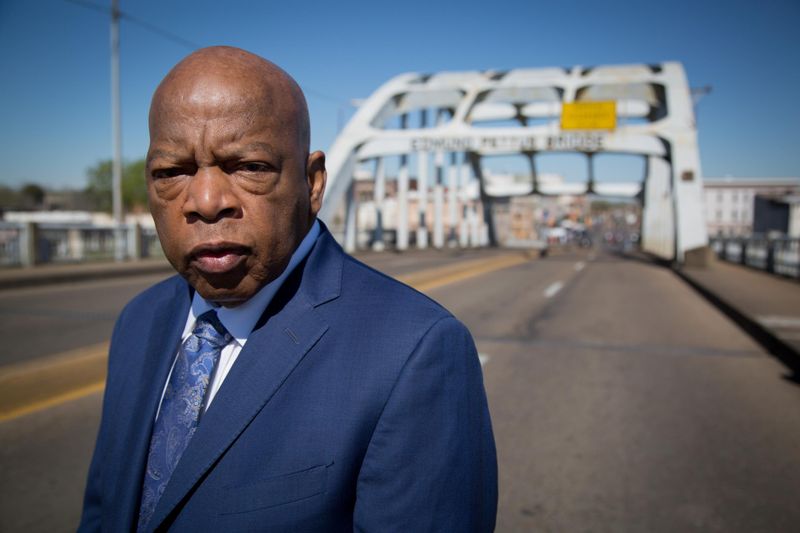Throughout American history, numerous Black patriots played pivotal roles in shaping the nation. These individuals, often overlooked in mainstream narratives, were instrumental in fighting for freedom, equality, and justice. From Revolutionary War heroes to civil rights activists, each of these 20 figures made significant contributions that continue to resonate today. This blog post pays tribute to their courage, resilience, and indelible impact on America.
1. Crispus Attucks (1723–1770)
In the chaos of the Boston Massacre, Crispus Attucks stood tall as a symbol of resistance. As a man of African and Native American descent, he was the first to fall, marking him as the first martyr of the American Revolution.
Attucks’ bravery and sacrifice ignited the fires of rebellion against British tyranny. His legacy endures as a testament to his indomitable spirit and the fight for liberty.
Did you know? Some accounts suggest Attucks was leading a group of protestors that fateful day.
2. Peter Salem (1750–1816)
Peter Salem’s courage was legendary at the Battle of Bunker Hill. An enslaved man who fought for his freedom, Salem’s decisive shot reportedly killed British Major John Pitcairn.
His actions not only demonstrated his personal bravery but also contributed significantly to the American war effort. Salem’s story reminds us of the many unsung heroes of the Revolution.
Fun fact: Salem’s heroics were immortalized in John Trumbull’s painting of the battle.
3. James Armistead Lafayette (1760–1830)
James Armistead Lafayette was a master of deception. As an enslaved double spy, he played a crucial role in the American victory at Yorktown by providing vital intelligence to the Marquis de Lafayette.
His espionage efforts were instrumental in turning the tide of the Revolutionary War. Lafayette’s loyalty and cunning earned him his freedom and a place in history.
Did you know? He later adopted Lafayette’s name as a tribute to the general who supported his emancipation.
4. Phillis Wheatley (1753–1784)
Phillis Wheatley, the first published Black female poet in America, used her eloquence to advocate for freedom and equality. Her writings, even acknowledged by George Washington, were a beacon of hope during her time.
Her work challenged the perceptions of race and intellect, proving the profound capabilities of African Americans. Wheatley’s legacy endures as a pioneer of literary excellence.
Fun fact: Wheatley was only 14 when her first poem was published, astonishing many with her talent.
5. Frederick Douglass (1818–1895)
Frederick Douglass was a beacon of hope and a voice for the voiceless. A former slave, he rose to become a leading abolitionist and advisor to President Lincoln.
His stirring speeches and writings galvanized the movement for emancipation and civil rights. Douglass’ life was a testament to the power of resilience and determination.
Did you know? Douglass was the first African American nominated for Vice President of the United States.
6. Harriet Tubman (1822–1913)
Harriet Tubman’s courage knew no bounds. As a conductor on the Underground Railroad, she led countless enslaved people to freedom.
In addition to her work with the railroad, Tubman served as a Union spy during the Civil War, conducting armed raids to liberate even more individuals. Her legacy is one of unyielding bravery and compassion.
Fun fact: Tubman never lost a passenger on the Underground Railroad.
7. Robert Smalls (1839–1915)
Robert Smalls’ daring escape from slavery is legendary. By commandeering a Confederate ship, he sailed himself and others to safety, securing his freedom and later becoming a U.S. Congressman.
His actions symbolized hope and the struggle for equality. Smalls’ story inspires generations to fight for their rights and stand against oppression.
Did you know? Smalls was one of the first African Americans to serve in the U.S. Congress during Reconstruction.
8. Dr. Martin Luther King Jr. (1929–1968)
Dr. Martin Luther King Jr. is synonymous with the American Civil Rights Movement. His leadership through nonviolent protests and stirring speeches led to significant legislative changes, including the Civil Rights Act of 1964.
King’s vision of a racially integrated and harmonious America continues to inspire. His legacy as a peacemaker and advocate for justice remains unparalleled.
Did you know? King was the youngest man to receive the Nobel Peace Prize at age 35.
9. Medgar Evers (1925–1963)
Medgar Evers’ fight for justice came at a great cost. As a WWII veteran and NAACP leader, he tirelessly worked for voting rights and desegregation in Mississippi.
Evers’ activism galvanized the civil rights movement, but also made him a target. His assassination highlighted the fierce resistance to equality at the time.
Fun fact: In 1969, Evers’ home was designated a National Historic Landmark.
10. Shirley Chisholm (1924–2005)
Shirley Chisholm broke barriers with her election to Congress in 1968. As the first Black woman to hold such a position, she paved the way for future leaders.
Chisholm’s audacious run for the Democratic presidential nomination in 1972 challenged the status quo and inspired women and minorities nationwide. Her motto, “Unbought and Unbossed,” perfectly encapsulated her spirit.
Did you know? Chisholm was posthumously awarded the Presidential Medal of Freedom in 2015.
11. Benjamin Banneker (1731–1806)
Benjamin Banneker was a self-taught genius whose contributions to science and society were groundbreaking. He helped design Washington, D.C., and used his intellect to challenge racial prejudices.
Banneker’s famous letter to Thomas Jefferson argued for racial equality, leaving an indelible mark on history. His work in astronomy and mathematics remains celebrated.
Fun fact: Banneker built a clock entirely out of wood, which kept perfect time for decades.
12. Elizabeth Freeman (Mum Bett) (1744–1829)
Elizabeth Freeman, also known as Mum Bett, was a pioneer for justice. She successfully sued for her freedom in Massachusetts, setting a precedent that led to the abolition of slavery in the state.
Her courage to stand up for her rights in a time of oppression was monumental. Freeman’s case paved the way for future legal battles against slavery.
Did you know? Freeman’s lawyer was Theodore Sedgwick, whose family she continued to work for as a paid employee.
13. William Carney (1840–1908)
William Carney’s valor during the Civil War was unparalleled. As the first Black soldier to earn the Medal of Honor, he heroically saved the American flag during the Battle of Fort Wagner.
His actions inspired countless others and demonstrated the courage of Black soldiers in a divided nation. Carney’s legacy as a war hero is a proud chapter in American history.
Fun fact: Carney’s Medal of Honor citation wasn’t officially awarded until 37 years after his act of heroism.
14. Ida B. Wells (1862–1931)
Ida B. Wells was a trailblazer in journalism and civil rights. Her relentless fight against lynching and her role in co-founding the NAACP marked her as a formidable force for change.
Wells’ investigative journalism brought national attention to racial violence, challenging America to confront its injustices. Her legacy is one of courage and unwavering commitment to truth.
Did you know? Wells was one of the first women to keep her last name after marriage.
15. Charles Hamilton Houston (1895–1950)
Charles Hamilton Houston was known as “The Man Who Killed Jim Crow.” As a brilliant lawyer, his legal strategies laid the foundation for the Brown v. Board of Education victory.
His dedication to dismantling segregation transformed the American legal landscape. Houston’s work has left an enduring legacy in the fight for civil rights.
Fun fact: Houston was a mentor to Thurgood Marshall, the first Black U.S. Supreme Court Justice.
16. Bayard Rustin (1912–1987)
Bayard Rustin was a master organizer and strategist. As the architect of the 1963 March on Washington, his efforts were crucial in the civil rights movement.
Rustin’s advocacy for nonviolent resistance and his support of Dr. Martin Luther King Jr. were vital to the movement’s success. His open identity as a gay man added complexity and depth to his activism.
Fun fact: Rustin was posthumously awarded the Presidential Medal of Freedom in 2013.
17. Fannie Lou Hamer (1917–1977)
Fannie Lou Hamer’s voice was a rallying cry for the oppressed. As a co-founder of the Mississippi Freedom Democratic Party, her famous quote, “I’m sick and tired of being sick and tired,” resonated deeply.
Her activism focused on voting rights and civil rights, empowering many to stand up for their rights. Hamer’s legacy is one of resilience and defiance.
Did you know? Hamer was instrumental in the passage of the Voting Rights Act of 1965.
18. Thurgood Marshall (1908–1993)
Thurgood Marshall’s legal prowess changed America forever. As the first Black U.S. Supreme Court Justice, he successfully argued against segregation in Brown v. Board of Education.
Marshall’s career was dedicated to ensuring justice and equality, breaking down barriers in the highest court. His legacy as a trailblazer and advocate for civil rights continues to inspire.
Did you know? Marshall argued more cases before the U.S. Supreme Court than any other lawyer in history.
19. Maya Angelou (1928–2014)
Maya Angelou’s words wove a tapestry of resilience and strength. As a poet and civil rights activist, her works like “I Know Why the Caged Bird Sings” gave a powerful voice to the Black experience.
Her life story inspired countless individuals, highlighting the strength in overcoming adversity. Angelou’s legacy as a storyteller and advocate for equality endures.
Fun fact: Angelou recited her poem “On the Pulse of Morning” at President Bill Clinton’s inauguration in 1993.
20. John Lewis (1940–2020)
John Lewis was a stalwart of the civil rights movement. As a Freedom Rider and leader of the Selma march, his courage in the face of violence was unwavering.
Lewis’ 33-year tenure in Congress earned him the nickname “Conscience of the Congress.” His legacy is one of relentless pursuit of justice and equality for all.
Did you know? Lewis was awarded the Presidential Medal of Freedom by President Obama in 2011.
